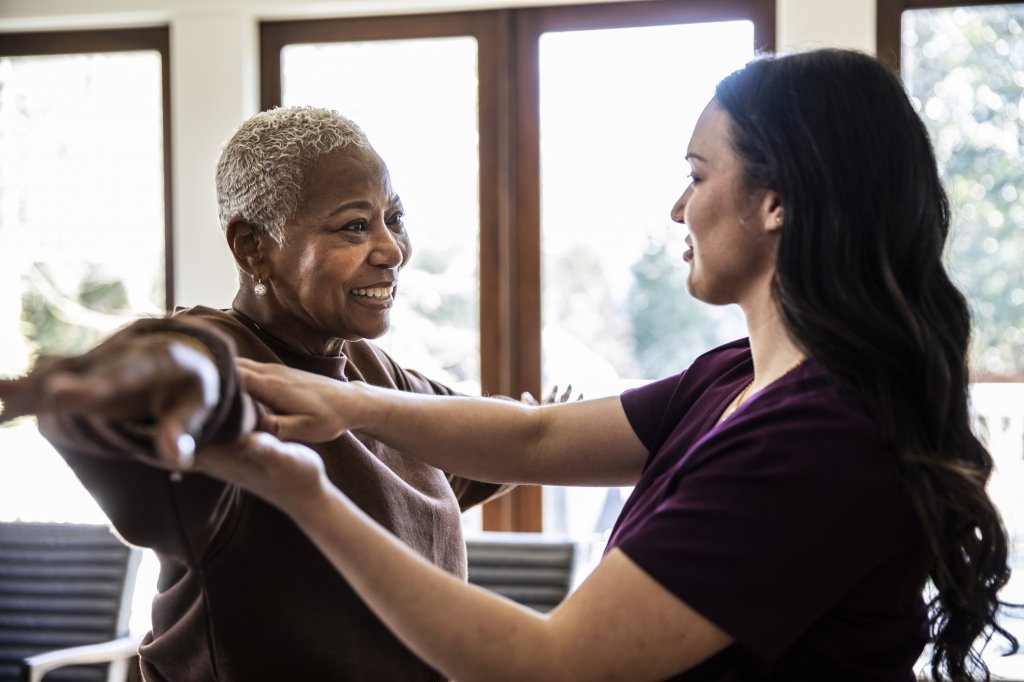The long-awaited Women’s Health Strategy has been published. Its call for evidence in 2021 amassed over 100,000 responses – one of the largest set of responses the Department of Health and Social Care (DHSC) has ever seen. Bodies such as the Royal College of Obstetricians and Gynaecologists (RCOG), influencers including the TV personality Davina McCall, and even the English Football League all came together under a campaign to encourage the sharing of personal experiences and stories from women and girls across the UK. This campaign had one simple message – women’s health, let’s talk about it.
TO PUT IT SIMPLY – NOT ENOUGH IS KNOWN ABOUT SEX AND GENDER-SPECIFIC CONDITIONS AFFECTING WOMEN AND GIRLS ALIKE.
‘I didn’t think they believed me,’ is a phrase we hear all too often from women trying to access health services in the UK. Ahead of publishing the Women’s Health Strategy, the Government revealed that over 4 in 5 women (84%) have experienced a situation where they felt they were not listened to by health professionals; a situation that appears to manifest at all stages of the health pathway, from cradle to grave. But why is this? Why is it that women on average take 7.5 years to receive a diagnosis for endometriosis, but overwhelmingly feel comfortable talking to GPs and healthcare practitioners about physical ailments and conditions?
INVESTING IN RESEARCH
The answer lies in the gender health gap, and deep rooted, systematic issues within our health and care system. To put it simply – not enough is known about sex and gender-specific conditions affecting women and girls alike.
The publication of the Women’s Health Strategy brings with it an announcement of major investment via the NIHR into research on women’s health issues, including plans to address data gaps and improve the quality of data improved by the NHS. This will include running a new reproductive health experience survey every two years to continue to listen to women and gather insight on their experiences of services, including for contraception and menopause.
For healthcare organisations, particularly those such as pharmaceutical companies who are investing in clinical trials up and down the country, this means a greater focus on pooled learning about women’s health than ever before. We know pharmaceutical companies are ideally placed as partners to the NHS and the wider health system, with an ability to transform the lives of women and girls through a greater emphasis on collating sex-specific data on women and girls in their clinical trials. This, coupled with a renewed focus via the Women’s Health Strategy to garner qualitative data about the experiences of women across the life cycle means that finally, we have a collective opportunity to eradicate entrenched inequalities in health and wellbeing.
The Office of Life Sciences (OLS), companies and other healthcare organisations conducting clinical trials too will benefit from further measures outlined in the Women’s Health Strategy. Plans have been announced to identify barriers to women participating in clinical trials, that often lead to gender biases – which is particularly for women from ethnic minorities and the most under-represented communities in the UK.
Studies suggest these factors historically have contributed to worse outcomes for women. For example, the University of Leeds study found that women with a total blockage of the coronary artery were 59% more likely to be misdiagnosed than men, and that UK women had more than double the rate of death the 30 days following a heart attack. It is imperative that we boost participation by women in these studies, to ensure sex-specific care and treatment is available for all.
TACKLING HEALTH INEQUALITIES
Health inequalities are also present when diagnosing women with conditions more prevalent to them, particularly that of breast cancer, for which Breast Cancer Now reports there is a clear deprivation gap. Those from the most deprived groups tend to be diagnosed with more advanced disease, suggesting they are presenting late to their doctor with breast cancer symptoms, alongside evidence from national and regional studies supporting this case. The result is significantly lower survival rates.
Screening is key, and the Women’s Health Strategy announces it will invest £10 million for a breast screening programme, with the creation of 25 new mobile breast screening units across the UK, targeted at areas with the greatest challenges of uptake.
For organisations with a focus on population health management, this is a significant announcement. There is opportunity to factor data garnered in the design of future models of care, ensuring health inequalities are understood and appropriate interventions are put in place. This ultimately will help tackle health disparities for women and contribute towards higher early diagnosis rates which are in line with the NHS Long Term Plan and leads to better outcomes.
FEMTECH AND THE OPPORTUNITIES OF DATA MINING
Through more targeted data mining, the Women’s Health Strategy will enable greater sharing and pooling of sex and gender-specific information.
With permission, medtech companies should be able to share their findings and research to develop the future of women’s health-focused education, alongside making improvements to fertility services, and ensuring women have access to high-quality health information. The Women’s Health strategy outlines this as an explicit ambition, with women’s health being added as mandatory training for incoming doctors.
This is a major step forward in closing the gender health gap, as the rich data gathered by medtech, and specifically femtech through applications tracking the likes of pregnancy, sleep, mental health, weight, periods and ovulation cycles can be reported back, with permission, into the ever-developing health education programmes.
This rise of digital healthcare has propelled the growth of the femtech market and advanced technology products have increasingly gained popularity. Femtech has been heralded for its ability to help women understand their own bodies better and empower them to have equal access to clinically safe technologies, whether that be for diagnostic, therapeutic or preventive purposes.
In the pursuit of delivering collaborative innovation within the NHS and improving the personalisation of health advice to women, closer working between the digital health technology sector, and more specifically with the femtech sector, is pivotal to ensuring more women have access to quality information. Positively, this need for closer working and collaboration was highlighted in the Government’s 10-year ambition, citing femtech in its ability to improve the personalisation of health advice provided to women.
CLOSING THE GENDER HEALTH GAP FOR GOOD
Closing the gender health gap and supporting women to live well not only benefits the health and wellbeing of women, but the health of the economy. We know women live on average for longer than men but spend more of their life in poor health, limiting their ability to work and participate in day-to-day activities.
The Women’s Health Strategy provides the opportune moment for healthcare organisations to collaborate with the NHS, embedding the experiences and ground-breaking work conducted in partnership with women into the transformation of a health system fit for all. Only time will tell, but perhaps in the not-too-distant future, women will finally feel their voices are heard.











